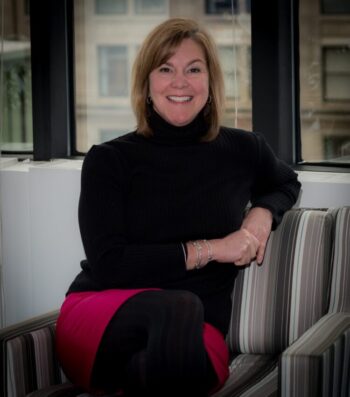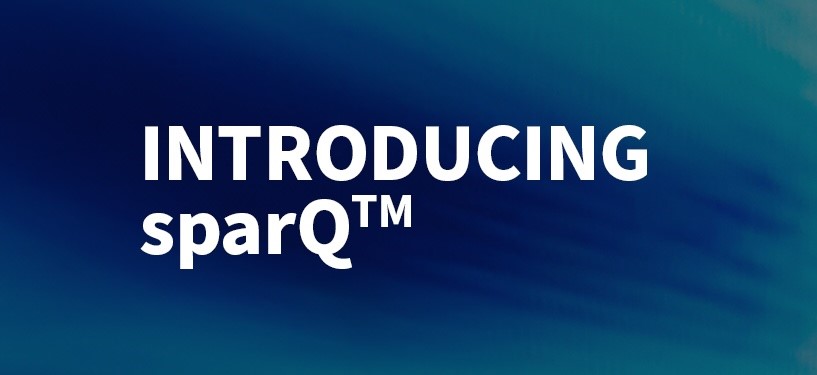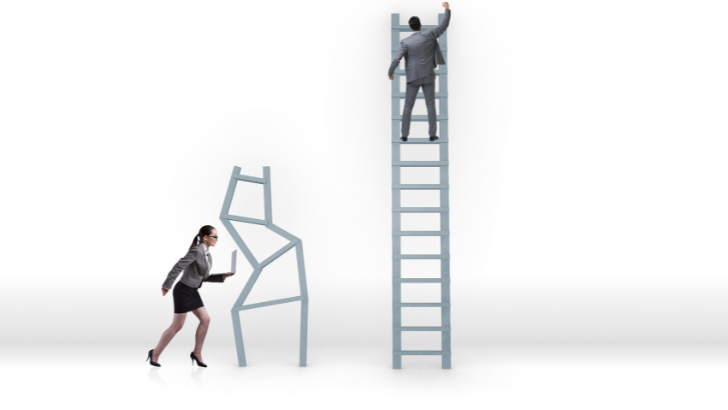I recently had the opportunity to sit down with one of my Talent Community leaders, Heather Hartford, Chief People Officer at Acquia. Heather has been a part of the Boston tech industry for years and brings a unique perspective to understanding how companies can meet an ever-changing business and workforce environment.
Heather and I had a wide ranging discussion around the changes brought about by the pandemic, how those will impact organizations going forward, the opportunities and challenges presented by the new flexible approach to work, and the importance of inclusion efforts within companies.
Our conversation follows:
What is the Acquia elevator pitch?
Acquia is the open-source digital experience company. Our goal is to make digital experiences easier. To break that down into layman’s terms: we have thousands of enterprise customers around the world, and we help them bring their digital experience to life. We want to make sure we create that experience across multiple platforms, desktop, phone, mobile, you name it.
Pre-pandemic, there were less than 10% of companies in the world that really felt like they had the digital presence that they needed to compete. Then, when the pandemic sent everybody into a tailspin trying to figure out how to run their businesses differently, our product and our team were uniquely positioned to help accelerate what companies needed and to leverage the best of what we do.
How did the pandemic impact your business over the past year and a half?
I try to look for the silver lining in the pandemic, and I think the finding for us is that we ended up having a thriving, tremendous business. We were fortunate that we didn’t need to reduce our workforce. In fact, we hired over 300 people last year. We were able to double down and invest in our business, but most importantly, we were able to keep our employees working and focus on their careers moving forward and thriving. In a time where everybody was really rocked by this pandemic, we were glad to take unemployment concerns off the table.
As someone who has worked in HR and talent acquisition for many years, you’ve had a unique view of the local tech talent pipeline. How do you think the past year and a half has impacted the tight local talent pool? Is it positive that you can now recruit remote workers anywhere, or is it negative because other regions can steal local mass talent?
Before the pandemic, about 30% of our workforce was remote. We’re global. We’ve always 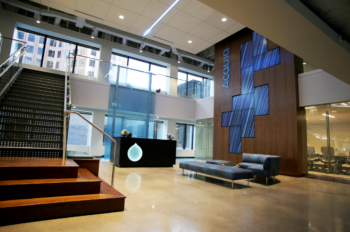 had a strategy of hiring into our hubs. And what is a hub? Boston, which is our headquarters. We have hubs in Pune, India and Reading, England. The pandemic opened a door around talent and, in fact, helped companies really think about different talent pools. We weren’t really the benefactor of that because we were a global business pre-pandemic, and we are used to having employees around the world.
had a strategy of hiring into our hubs. And what is a hub? Boston, which is our headquarters. We have hubs in Pune, India and Reading, England. The pandemic opened a door around talent and, in fact, helped companies really think about different talent pools. We weren’t really the benefactor of that because we were a global business pre-pandemic, and we are used to having employees around the world.
We’ve made a conscious decision not to revert back to old habits and instead to be more innovative. It’s no longer our practice to just hire great people wherever we can. As any company scales, it creates a challenge around community and collaboration. For a lot of companies, and especially for our company, that is not sustainable, so we decided to adopt a hub methodology. We hire in and around our hubs. We want to make sure people have the ability to come together, collaborate, communicate, and really share.
I think it’s been awesome for companies that have been restricted to one area, and, quite honestly, a lot of that’s a mindset. A lot of companies just wanted their people where they were, and the whole future of work is challenging that concept. What I love about this openness of hiring for the world – even beyond Acquia – is that it brings many people opportunities that they couldn’t realize before.
What are some of the changes as far as process, benefits, work culture, expectations, and development that companies will need to implement to attract and retain employees in the new environment?
We’ve been open since last June on a voluntary basis, where possible. The name of the game today is flexibility. We understood that because of our pre-pandemic workforce flexibility. The biggest thing I’ve noticed living through the pandemic, and coming out of it, is people are really reevaluating their personal goals and priorities.
One of the things I’m talking about is the pre-pandemic notion that when people thought about employment, they really thought about their company, where it was located, and therefore where they needed to be, and how that influenced the community they lived in. Now people are thinking differently. They’re saying, “Here’s my life and all the things I need in my life,” and one of those things is employment. The shift is that employment used to drive many decisions, but today because there is more opportunity and flexibility, we’ve seen people move to different places in the world. People sell their primary homes and move to second homes. People are making life choices and then asking “how do I make my work fit?” To be competitive as an employer is to provide flexibility because the pandemic has created a pause point for people to evaluate what their future will look like and how their work fits into it.
We also evolved the things we knew worked well, such as the opportunity for learning and development. One of the biggest pivots we made is to embrace more microlearning and learning on-demand, because everybody felt increased pressure on their time. Homeschooling or taking care of a parent, are just some examples of how everybody had a degree of complexity that they used to be able to leave behind when they went to work during the day. Instead of saying to the team, “We’re going to have your two-hour management training class today,” we created modules and said, “Go consume them on your own time, and then we’ll host a lunch and learn to talk about what you have learned.”
We are going to continue to do more of that because the pressure on people’s time is real. I think one of the mistakes companies have to be careful to avoid as we come out of the pandemic is saying “That’s over, and let’s get back to what we used to do.” What we used to do is not the future of who we are.
How is all of this impacting your retention?
We’ve been fortunate. We are seeing all the articles about “the great resignation.” What we have found in our own business is that the retention rates of our employees are the strongest they’ve ever been. There are a lot of people out there leaving their jobs, and I attribute it to one basic thing – organizational trust. When and how companies reacted to the pandemic had a big impact on their employees. What we tried to do was provide flexibility and be open. We thought about the complexity of the home, and additionally about people’s mental state. What I tried to do with my team in the heat of the pandemic was to say, “What do our teams need? How do we help them? How do we help them cope?” We wanted to provide solutions, such as sending age-appropriate activity kits to people’s homes for their kids, offering Headspace so people could meditate, and hosting virtual speakers. For example, when the pandemic first hit, we engaged a doctor to host a session for education and Q&A. We met people where they were, and I don’t mean that physically. It’s empathy – that earned us credibility and trust.
We’ve always had a very open, engaged culture, but what I’ve heard from a lot of our employees is that they appreciate how we reacted to this crisis, not only for continuing to provide employment and development, but how we really thought about our people as human beings; how we engaged them and tried to help them in different ways.
When people think about switching jobs, they think about, “What did my community and company do for me, and what do they continue to do? Am I getting the flexibility I need as I reevaluate?” All of those things come into play. Do we have turnover? Of course, we do. Some of that’s healthy. Every company should have turnover, but our turnover is lower right now.
As you think about a return to the office, what are some of the most important considerations for Acquia? Do you anticipate having everyone fully back in person? How are you handling office space considerations with a potentially new work model?
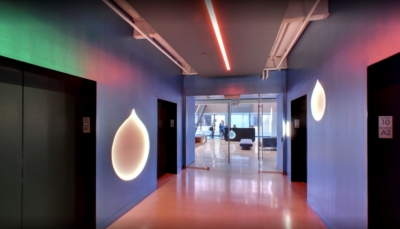 First, let me tell you about our approach. We discussed earlier how important flexibility is. As we evaluated, we thought about “Do we come back? Why do we come back? Why is it important to us if we’ve been so productive? Our business has been thriving.” At the end of the day, we anchored on something simple: we can’t replace the power of an in-person encounter, whether it’s collaboration or bumping into somebody in the hallway. We stepped back as an organization and asked what was important to us. Our culture has always been important to us. We have a very distinct set of core DNA that really explains our culture and our values. We believe there is this concept of intentional connections.
First, let me tell you about our approach. We discussed earlier how important flexibility is. As we evaluated, we thought about “Do we come back? Why do we come back? Why is it important to us if we’ve been so productive? Our business has been thriving.” At the end of the day, we anchored on something simple: we can’t replace the power of an in-person encounter, whether it’s collaboration or bumping into somebody in the hallway. We stepped back as an organization and asked what was important to us. Our culture has always been important to us. We have a very distinct set of core DNA that really explains our culture and our values. We believe there is this concept of intentional connections.
Based on that, we created a model that allows for flexibility. We looked at the shift of our workforce, and we introduced Hybrid. Hybrid wasn’t a “thing” pre-pandemic. We were typically either working in the office, or we were working remotely. Hybrid reflects what we’ve learned in the last 18 months about how we work. People need flexibility, and they’ve made different life choices, so let’s continue to trust our employees and work in a more intentional way.
On the days that I’m working in the office, I try not to be locked in a conference room or behind closed doors. I’m walking in the halls and talking with people, because on the days that I am working remotely I can attend online meetings. Make the shift intentional. The other silver lining that I personally have come to really appreciate both as a people leader and an employee is that, before the pandemic, there were many leaders who were very focused on office time. People were more rigid, and they really believed that the people who had that flexibility were special roles or exceptional talents, and it was reserved for very few. Then when we all went home, we noted that everyone is working at home and thriving. Business was never better. I love that it has forced the world to think differently about how people work.
Inclusion has been an important topic for the industry, and the past year has brought DEI efforts to the forefront. What is Acquia doing to create a more inclusive workforce for itself in the industry?
Like every other company in the world, we are forced to take a hard look in the mirror and say, “What are we doing? Are we doing enough for our communities?” The thing that we realized at Acquia is that when we stepped back and looked at the data and at our workforce, we saw it does not represent the communities in which we do business. We decided that we needed to do something about this. It’s always been a priority, but I think the world woke us up on many topics this year, and this is one where I think more of us needed to be pushed.
We joined the Tech Compact for Social Justice. We’ve done a lot of little things and systematic things. When I say little, an example is something as simple as leveraging Textio to run all of our communications and job postings to eliminate any bias from our language. We also use it for our job descriptions and communications. We brought DEI speakers to the company, and we said, “Come talk to us. We know it’s our responsibility to educate ourselves but help us on that journey.” We’ve built new partnerships. We partnered very intentionally with Diversity Jobs and recently earned the company badge as a top employer.
I personally have been trying to figure out ways that we can get more involved earlier. There’s a lot of data out there that says for women specifically, early in their lives, STEM is not an opportunity. It’s just not spoken about. The place where I think we all can do better is reaching children earlier to help them see that there are these incredible opportunities out there to explore.
How is addressing DEI important to Acquia’s business?
When people look for partners, they don’t just look for somebody who can deliver or is like-minded, but they look for someone who shares their values. Organizations want to know that diversity is important to us. It just makes for a better business. You want diversity of thought and ideas and experiences at the table. That’s what makes your product and your organization stronger.
I would be remiss if I didn’t say that we formalized some Employee Resource Groups (ERGs) as well, which was awesome. We’ve always been recognized for people feeling like they could be their authentic selves at Acquia, but what world events taught us is that we had to be more prescriptive and open up avenues for people to come together. The ERGs have been a great way for people to build community, communicate and share. We live and work in a global, dynamic, diverse, business and if our organization doesn’t reflect that in our thinking and our approach, then we’re not going to be able to compete and win.
Any final thoughts you’d like to share?
Even though companies are evolving and trying to figure out what the future of work looks like, I think it’s really important to leave space to continue to learn and evolve. A mistake that many companies made is wanting to be early out of the gate to be declarative. They thought it would be competitive, but it’s hard to pull back once you do that. There’s so much learning to be had that being first is not a win here. Having a mindset to say you will evolve and continue to grow is important, because at the end of the day, you need to meet the needs of your business and your people. I would say to all my peers and co-workers in the industry, “You know, you don’t always have to be a trailblazer.”
Even though we have a defined strategy for our team, we are currently planning to have a grand reopening in our Boston office in September to welcome the team back. It’s our headquarters. All our offices will celebrate formally. But we have said to our employees, “This is what we know right now but stay on this journey with us and trust us, and we’ll evolve together.”
What I hope the pandemic taught us is that nobody has the answers. What we have to do is rely on each other and stay open to evolving together.
